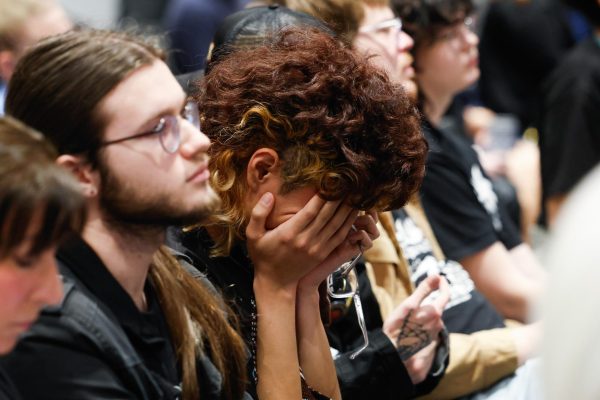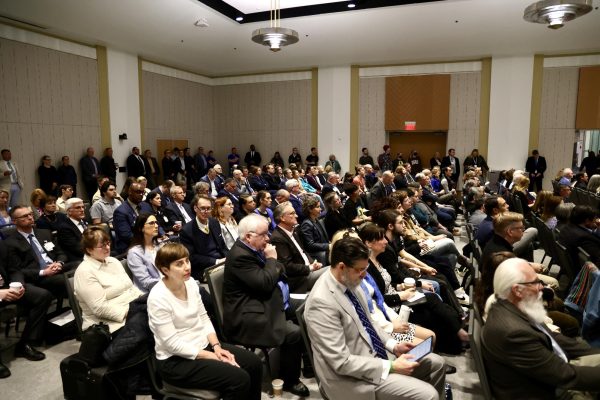As the polls close, students gather for armchair analysis
February 6, 2008
While thousands of people were casting votes in border-to-border primaries, a small group of UK students was debating election issues in Patterson Office Tower last night.
Although 24 states held primaries and caucuses yesterday, the students were restricted to discussion because Kentucky’s primary is not until May 20. Watching as almost half the states cast votes for party nominations had history professor Phil Harling excited to vote himself.
“We’re still in the analytic mode,†Harling said. “We’re not participating, but I was itching to vote.â€
Other students said they would like to head to the polls earlier in Kentucky in future years.
“I would like to see our primary moved up to Super Tuesday,†said Keri Borden, a biology and topical studies sophomore.
In past years, Kentucky voters have felt that they would receive more attention from presidential candidates if they could vote in the primaries when the race was still undecided, said Donald Gross, chair of UK’s political science department, on Monday. But when the state tried having a Super Tuesday primary in 1988, the results didn’t live up to expectations.
“The last time Kentucky moved up to Super Tuesday for exactly that reason, it didn’t work out that way,†Gross said, adding that Super Tuesday tends to mean minimal personal attention from each candidate because so many states are contested at the same time.
One student watching results come in last night said she changed her voter registration to participate in yesterday’s primaries through an absentee ballot. Chelsea Darnell, a Kentucky native, registered to vote in Georgia after her parents moved there a few months ago. Darnell, a political science, economics and international relations sophomore, said she wanted her voice heard earlier.
Even though most of the students could not vote, they were closely tracking the races online, something they attributed to convenience and personal choice.
“I like to use the Internet,†said Joe Tarantino, a chemical engineering sophomore. “I can research on my own time and don’t have to rely on the media.â€
Other students embraced the social networking site Facebook, which has started featuring political coverage through a partnership with ABC News.
“It has the ability to get people my age involved,†Borden said. “It’s a good combo, in the fact that everyone has and uses Facebook.â€
Even though many Kentuckians were on the sidelines during yesterday’s process, the Super Tuesday results were not going to influence some students’ preferences.
“I’ll stay with my candidate unless they drop out,†said Jessalyn Ubellacker, a biology and international relations sophomore. “But these votes won’t influence me.â€





















































































































































